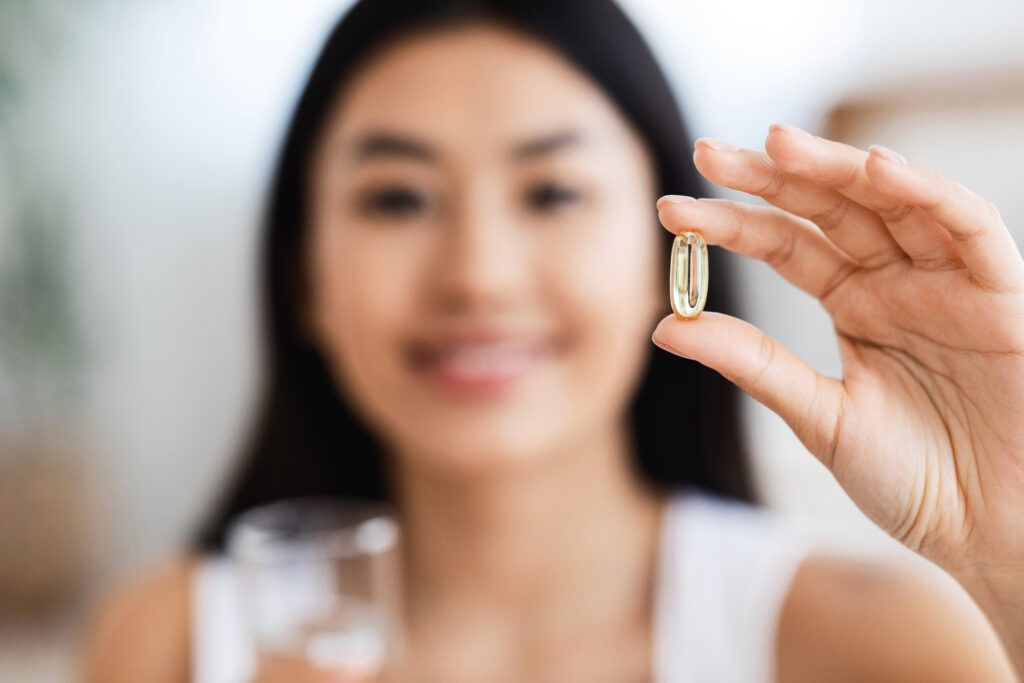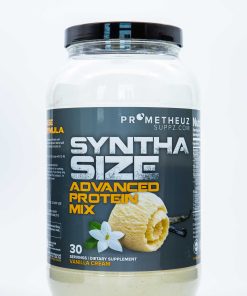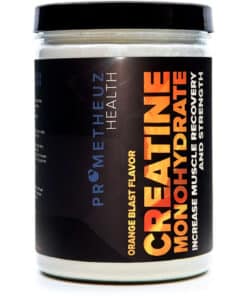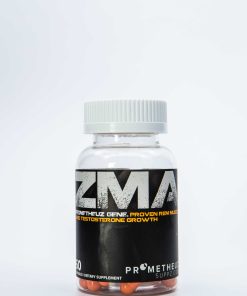Nutrition
SUPPLEMENTATION: 4 SUPPLEMENTS YOU SHOULD BE USING AND DOES IT DESERVE THE HYPE?
I still remember the first time I bought a dietary supplement. It was a max gain product which, as I remember it was basically a creatine and carbohydrate powder with a proprietary cocktail of other essentially useless stuff thrown in. Of course this was about ten years ago and at the time I thought that one tub of this stuff was going to have me looking exactly like the athletes who were endorsing it in the magazines. I didn’t really know much about supplements back then. Ten years later science has changed a lot along with our perception and knowledge of supplements and how they work.
How much supplements contribute to athletes is tough to say. How you look and perform is dependent on such a multitude of factors. All I can say for sure is that it has a lesser impact then genetics, nutrition and training and of course being consistent with those over time. That isn’t to say supplements don’t help at all, they certainly do achieve what it says in the name, i.e. supplements. One cannot solely rely on supplements and as such should always consider a holistic approach to training and diet to get the best value out of your supplements.
The purpose of this article is to condense some of my knowledge I’ve learned, from personal experience and education, into my top 4 supplements and delve into the scientific literature vacuum of why you should be using these supplements not only in your workouts, but also in your daily life.
Whey Protein
Protein is essential in any athlete’s nutritional plan as it is good for building up tissues and fibers, making them stronger and increasing elasticity over time. Due to this, eating or supplementing protein after a workout actually increases the impact of exercise while also helping to repair muscles, maintain them, and push them to grow.
Whey protein is basically one of the proteins in cow’s milk compromising about 20% of the total with the other 80% in casein. Which in itself a potent muscle builder whose slow digesting properties might make it arguably a better choice then whey before bed.
The whey vs casein debate is one that is ongoing in the literature. However it seems to be in theory that post workout, faster nutrient delivery and uptake to the muscles make sense, a mixture of slow and fast protein seemed to be the best. In ‘The Protein Book’ scientific author Lyle MacDonald recommends a mix of whey and casein to take advantage of whey’s effect on muscle protein synthesis in casein’s effect of limiting breakdown. For this reason mixing whey with milk rather than water or using a whey plus casein blend would be more optimal. Ultimately whey should be on top of the list of recommended supplements because it provides such a practical way of getting your total daily protein targets.

Protein expert and researcher Stu Phillips has been cited as recommending protein intakes for trained lifters of 0.7 to 0.8 grams per pound per day when bulking and slightly higher 0.9 to 1.1 grams per pound when cutting. Just to keep it simple one gram per pound is probably enough for pretty much everyone who is well trained and decently lean. The bottom line is supplementing protein can make it a lot easier to hit this target.
Research also shows that whey doesn’t harm the liver or kidneys except for when there is pre-existing damage of contention supported by the World Health Organization in Institute of Medicine. Assuming you have adequate calcium and vitamin D, the former of which whey is a good source, and an increase in protein has no negative effect on bone health and may even enhance it. My general recommendation is to take whey protein as needed to hit your total daily protein target of 0.7 to 1 gram per pound per day.
Creatine
Creatine is not a steroid! Creatine is produced by the human body from amino acids arginine and glycine, and its main function is to assist recycling of ATP- the energy currency of the cell; primarily in muscle and brain tissue. Creatine is the most widely used performance enhancing supplement by athletes, men and women of all ages. When used in moderate amounts and with normal exercise, creatine does not cause bulking but does increase strength and recovery.
The reason you see a lot of strength athletes and bodybuilders using creatine is due to its proven effect on increasing ATP. More ATP increases the ability of strength and power output so in other words if you’re a athlete that can normally bench 200 pounds for 5 reps, taking creatine over time you may be able to get 2 additional reps. Those 2 reps transfer to more strain on the chest and more muscular fiber damage meaning over time better adaptations or gains. Creatine absolutely makes you stronger as it provides you with more energy to do those lifts.
New research has shown that creatine also directly stimulates muscle building. Creatine does this by acting on myostatin. Myostatin is a gene humans have in their body that suppress muscle building to hinder building of unnecessary muscle in areas such as your heart and to help maintain or control calorie balance. When engaging in strength training our myostatin levels decrease temporarily aiding us in building muscle. Creatine supplementation has a similar effect as it also helps further lower your myostatin levels so you will build more muscle. So not only does creatine aid in increasing power for athletes such as powerlifters but it also directly aids in building muscle for athletes such as bodybuilders due to its interaction with the myostatin pathway.
Majority of people associate creatine with strength training and don’t realise the effect it has on endurance athletes. When participating in longer duration activities such as a marathon you are not really using any of your short term ATP- PC energy but creatine supplementation does still have benefits as research have shown that prolonged creatine usage leads to decreased muscle damage that ensue following a workout. This means marathon runners making use of creatine tend to recover at a faster rate. Faster recovery means increase in workload meaning more road work and thus increases in your fitness levels.
One of the most overlooked benefits of creatine usage is its effect on the human brain. Creatine has been proven to aid in mental focus and brain clarity as it helps to keep your brain cells healthy. Interestingly recent clinical studies have been using creatine in adolescents as young as one year old who have sustained traumatic brain injury. Creatine is practical as increasing ATP in the brain helps the brain to recover and heal more rapidly from traumatic brain injuries. This has massive implications in sport where a recent light has been shed on the serious issues of concussions in contact sport.
The most researched form of creatine currently is Creatine Monohydrate. All the positive benefits we associate with creatine (increase in power, size and strength) are supported by research done on creatine monohydrate. Most production companies of newer forms of creatine claim improved percentages of creatine available for muscles. But with creatine monohydrate as much as 99.1% of creatine is delivered to your muscles, and as such the more expensive newer forms might not be the best value for your money as the room for improvement is redundant.
To summarize creatine is absolutely one of the safest and most effective supplements that you could be taking and confers a lot of benefits to strength, muscle building and brain health. I recommend 3-5 grams per day, long term use of creatine monohydrate as a performance enhancing and lifestyle supplement.
ZMA’s
Zinc magnesium aspartate, or ZMA, is a popular supplement in recent years that has flooded the market amongst athletes, bodybuilders and fitness enthusiasts. It contains a combination of three ingredients zinc, magnesium and vitamin B6. It claims to increase strength and muscle growth and improves endurance, recovery and quality of sleep. However recently there has been some debate over the effectiveness of ZMA as a supplement. Let’s clear up this debate and have a look at the facts of what exactly ZMA is and what it isn’t.
Contrary to popular belief ZMA is not a testosterone booster, anabolic agent or sleep aid! ZMA is simply zinc, magnesium and vitamin B6. Three very critical minerals that are essential, meaning we need to get these minerals in our diet. The problem most people face is a diet lacking in essential nutrients such as zinc or at least the ability to absorb the zinc that we do get from our diet. Many things interfere with zinc absorption and alter our zinc levels such as sweat and metabolic processes. A lack of these micronutrients can be very prevalent when training and not following an adequate nutrition plan to fulfil the needs now placed on your body. This is where ZMA supplements aid you in ensuring the body functions optimally to cope with the stresses of working out without following a very strict meal plan.
Simply put ZMA is three critical micronutrients that our bodies need! Zinc a mineral where, if you are deficient, will result in decreased serum testosterone. Magnesium, which is the second most commonly deficient micronutrient behind vitamin D, has been thoroughly found to slightly improve sleep quality. And vitamin B6, a multipurpose coenzyme that aids in energy production.
The problem we face with most ZMA supplements is the fact that it is compounded of just these three simple micronutrients that can easily be consumed in a proper meal plan. Therefore I recommend ZMA Prometheuz Gene as it has a slightly different formula. To ensure you have all the added benefits of ZMA this product was designed to provide the right minerals, compounds and amino acids, the combination of which increases serotonin and melatonin production and helps regulate mood and sleep. It strengthens the immune system, decreases inflammation, accelerates muscle recovery and improves testosterone production. Always look out for supplements that offer a holistic approach as the body is a complex organism and should be treated as such.
Testosterone Boosters
Testosterone as a bodily function is pivotal in many aspects of sexual well being and body composition. This has led to a wide array of testosterone boosting supplements that are readily available, but only a handful have significant research to support their use. Most testo boosting supplements will likely only have destinct benefits in individuals with fertility issues or chronic low testosterone levels. Some do however also appear to benefit competitive athletes or dieters, who often experience significant decreases in testosterone due to restrictive or stressful regimes.
This is where the most popular booster Tribulus Terrestris is a great supplement to support your body in producing optimal testosterone when being placed under stress. Tribulus is a plant that provides a fruit covered with sharp spines. Reportedly it has been stated that tribulus is also known as puncture vine as it has sharp spines able to flatten bicycle tires. It has been used for many years in traditional Chinese medicine to increase athletic performance or enhance libido. It is said to raise your levels of certain hormones, including testosterone and estrogen and is found in most of your testosterone boosting supplements.
However not enough research based evidence exists to support the claims of tribulus and as such many of your pure tribulus supplements can be a waste of time and money! However tribulus is not the only supplement trying to boost testosterone levels naturally and as such the market for a healthy natural booster has become quite competitive. Therefore I recommend Alpha Testos as it has been scientifically formulated to include many of your popular testosterone boosters such as tribulus, magnesium, long jack root, ashwagandha root and D – aspartic acid.
Long jack root is used in traditional medicine in Malaysia, Vietnam and other Asian countries to treat malaria, infections, fevers, male fertility and erectile dysfunction and serves as a perfect natural testosterone booster along with tribulus to ensure you are functioning at optimal level when training. Another important natural amino acid is D- Aspartic acid that works mainly by increasing levels of follicle stimulating hormone and luteinizing hormone, the latter of which stimulates certain cells in the testes to produce more testosterone.
Therefore a holistic supplement with the right blend of scientifically blended ingredients can not only help you to function at optimal testosterone levels but can actually boost your testosterone contrary to claims of most boosters on the market.




